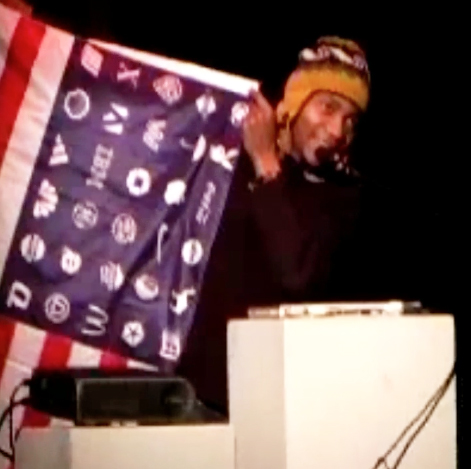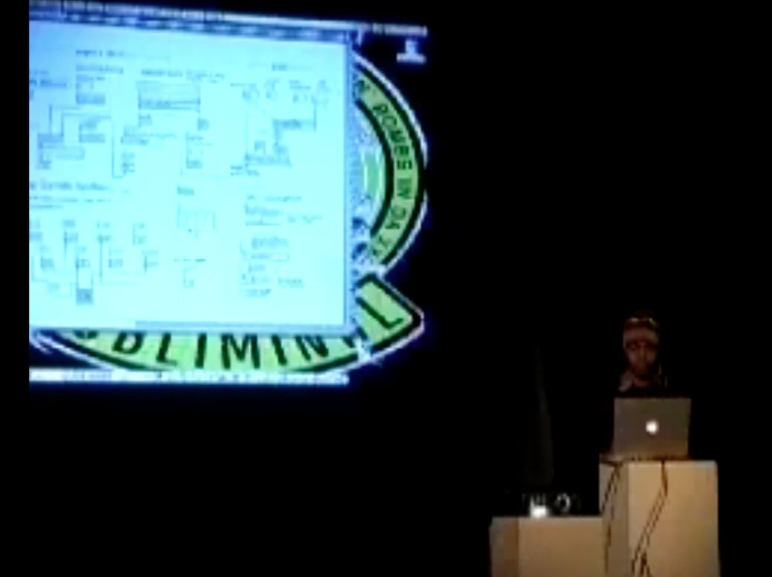Aaron Swartz Day 2018: The Inside Story – Part 1: DJ Spooky At The Creative Commons Launch (2002)
Complete Transcription, Video, and “Trailer” of “Rebirth of a Nation”

From the transcription, DJ Spooky, Creative Commons Launch, 2002:
To make a long story short, when they asked me to do a piece for this, I was thinking about it. I am in the middle of about three different projects. One of them is “Birth of a Nation” I am remixing that. It’s an early D.W. Griffith film. And many copyrighted works that are pre-1920 are still accessible. The film makes kind of a statement about the ownership of culture, and of course, about ownership of memory. Collective memory.
So that’s the project that’s going to be associated with Creative Commons. What I’d like to do is show a snippet of it. I presented an early work in progress of it at the Castro Theater.
Essentially whenever you hear something and the idea is made, it’s always a sense of playing with memory. What I’m fascinated with in the Eldred case, is the idea of who controls memory. How can you recall an image or a sound that’s essentially part of a collective unconscious. How we think of things that just go through your mind every day and how you externalize that. That’s what DJing is about. It’s playfulness. It’s reverence for controlled memory. Reverence for the found object.
So essentially, that’s what DJing has become. It’s almost a basic fabric; part of the the fabric of contemporary culture. So, there’s that kind of thing, which to me it becomes kind of what I like to call 21st century – a new form of folk music or folk culture…
these issues, always migrate. You control one thing, the net will thread its way around it. And so on and so on.
That sense of control, one of the terms Larry always uses a lot, in his great book “The Future of Ideas” – if you haven’t read it yet; you should – is the idea of “creative co-authorship.” Being able to actually reach into a text and reconfigure it. And if there’s something we’ve seen throughout the 21st century, whether you are looking at the outside of things, or the underground or overground, it’s that sense of; whether you are looking at William S. Burroughs or the Jack Kerouac and the beats in the 50s, or the Dada scene in the 20s, or the early cinema people working with that, is that America has always been the place of “the mix.” But somehow, I think in the 19th century we were a net importer of intellectual property, whereas after a certain point we became a net exporter, and that’s when all these kinds of control issues come up.
